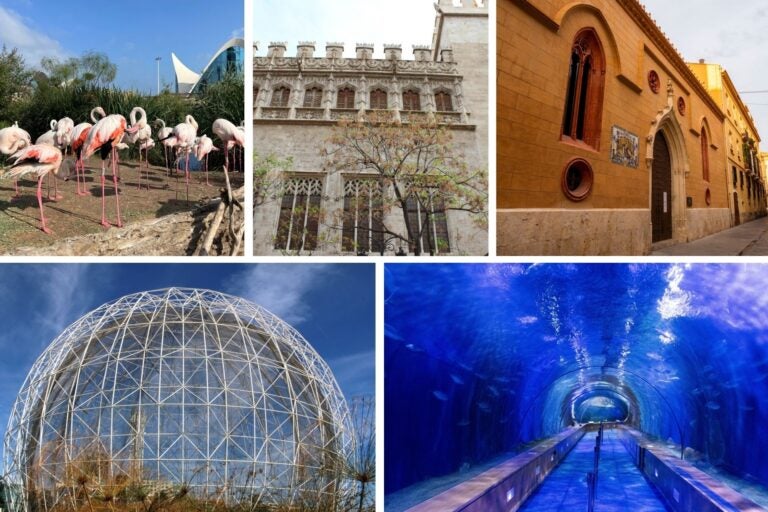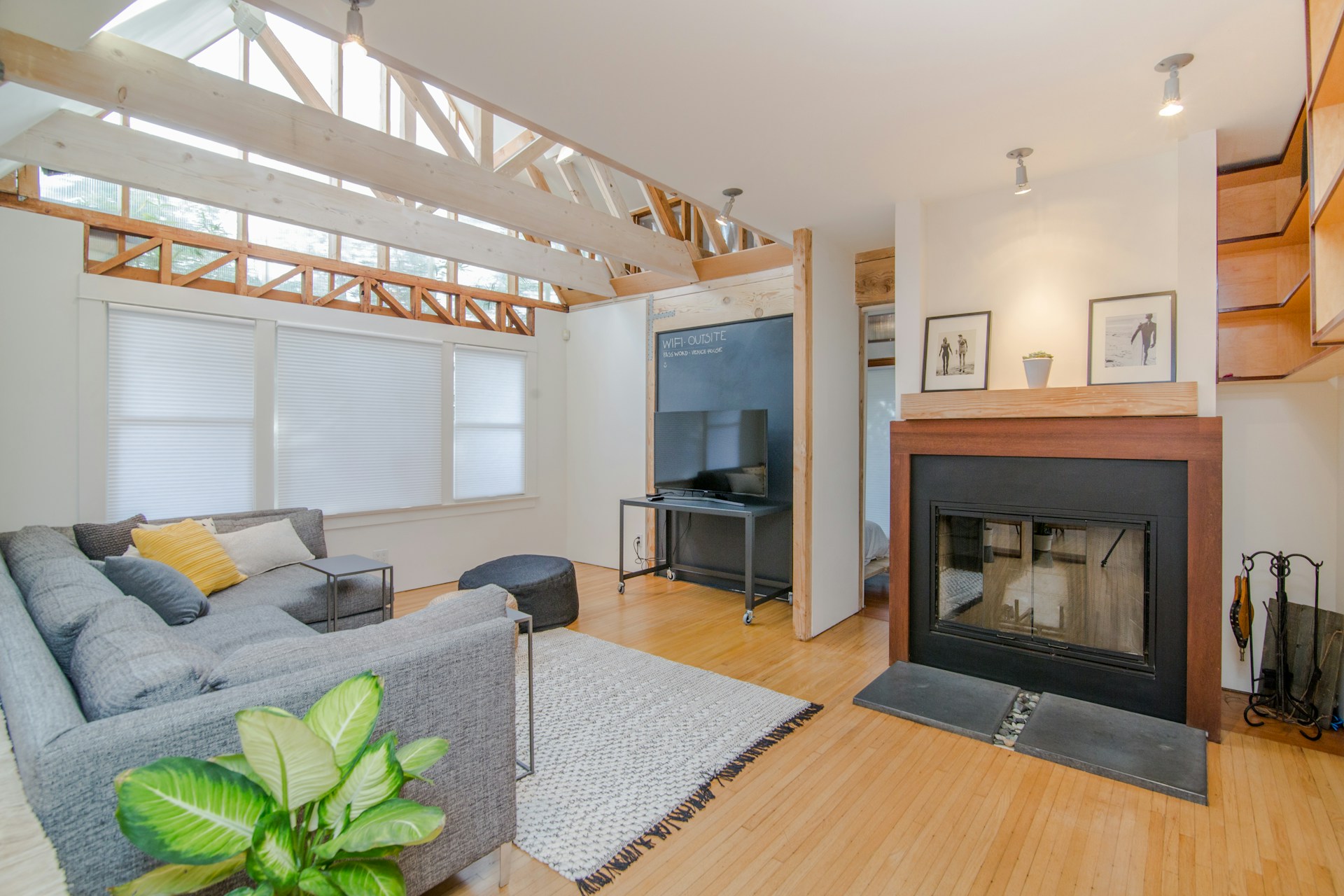Live in Valencia: Learn advantages, disadvantages & costs
Come and live in Valencia and explore the guide we have prepared for you to learn more about its quality of life.
Have you thought about where to live in Valencia? This vibrant city on the Mediterranean coast is Spain’s third largest and enjoys sunshine almost every day. Living in Valencia is ideal whether you want to work remotely, study at a university, or simply spend some time enjoying the local lifestyle. On top of that, the cost of living is lower than in bigger cities like Madrid or Barcelona.
In this article, we will guide you through what life is like in Valencia, including its quality of life, technology infrastructure, access to education, healthcare, economy, and typical salaries. We will also highlight what we consider the main advantages and challenges you might encounter when you decide to live in Valencia.
This is the quality of life in Valencia
Looking for a European city with great weather and affordable living costs? Consider living in Valencia. With a lower cost of living than other major European capitals like Paris, London, or Madrid, it is easier to manage your budget and make ends meet. Below, we will give you an overview of the city’s quality of life and explain how foreigners can access its main services.
Study in Valencia as an international student
More and more international students are choosing to live in Valencia while completing their studies, thanks to the variety of scholarships available, including those from the Spanish government (MEC), European programs like Erasmus+, or private institutions such as the Carolina Foundation. But which are the top universities in the city?
- University of Valencia (UV): It is one of the oldest universities in Spain, renowned for its excellence in social sciences, law, medicine, and the humanities. It consistently ranks highly in international rankings such as the QS World University Rankings.
- Polytechnic University of Valencia (UPV): It is highly regarded in fields like engineering, architecture, computer science, and design. In 2024, it was recognized as the top technical university in Spain by the U-Ranking from the BBVA Foundation and Ivie.
The process for coming to Valencia to study depends on where you are from. EU and EEA citizens do not need a visa, but if you plan to stay longer than 90 days, you will need to register at the Foreigners’ Office to get a EU registration certificate and a Foreigner Identification Number (NIE).
If you are not an EU citizen and your course lasts longer than three months, you will need to apply for a student visa to study in Spain. This visa also allows you to work up to 30 hours per week
Valencia, a safe city
Walking around Valencia is very safe. According to the Ministry of the Interior, the city has a crime rate of 47.9 offenses per 1,000 residents, lower than in other major cities like Barcelona or Madrid. In addition, the city scored 70.3 out of 100 on Numbeo’s global safety index in 2024. If you want to know which neighborhoods are the safest to live in, we recommend:
- El Pla del Real: Upper-middle-class residential area with parks, universities, and low crime rates.
- Algirós: Very popular among students and young professionals, well connected, and with a peaceful atmosphere.
- Camins al Grau: Modern area near the City of Arts and Sciences, with good security and services.
- L’Eixample (Ruzafa and Gran Vía): More lively and central, with a good sense of security, especially in residential areas.

Find out how to access healthcare
Valencia’s healthcare system is part of Spain’s National Health System, which the World Health Organization (WHO) considers one of the best in the world. As a foreigner living in Valencia, you have several options to access free healthcare:
- EU nationals: You must apply for a European Health Insurance Card (EHIC) in your country of origin at the relevant health or social security agency.
- Resident foreigners: You need to register as a resident in Valencia, and if you contribute to social security or are an immediate family member of someone who does, you can apply for an Individual Health Card (TSI) at a local health center.
- Foreigners in an irregular situation: If you are registered as a resident and have lived in the city for at least 90 days, you can apply for a special health card for this group at local health centers or social security information and service offices.
You can also get healthcare by taking out international health insurance. For instance, students applying for a study visa are required to have medical coverage. This makes it easier and faster to access care at private hospitals and clinics. Here is a list of some of the top public and private healthcare centers in Valencia:
- La Fe University and Polytechnic Hospital
- Valencia General University Hospital
- IMED Valencia Private Hospital
- Quirónsalud Valencia Private Hospital
Economy and labor wages
If you are planning to move to Valencia to work for a local company, the average monthly salary is around $1,652 net, which is lower than in larger cities. However, according to the INE, the cost of living in Valencia can be 20-25% lower than in Madrid or Barcelona. The sectors with the highest demand for professionals include:
- IT and web development
- Tourism and hospitality services
- Language education
- Graphic design and digital marketing
- Export and international trade
- Agriculture and agri-food industry
With strong skills in Spanish and English, you can aim for professional roles, but if your Spanish is still limited, you could find work in hospitality, logistics, or teaching your native language. Valencia also encourages entrepreneurship by providing grants and coworking spaces, particularly for ventures in gastronomy, e-commerce, consulting, or sustainable tourism.
Internet connection in Valencia
If you live in Valencia and work remotely as a digital nomad, you will enjoy excellent connectivity with 4G and 5G coverage and average download speeds of 70 to 100 Mbps, according to Speedtest. Major providers like Movistar, Vodafone, Orange, MásMóvil, and Digi offer fiber optic internet in most neighborhoods.
If you want a reliable and stable way to work remotely without interruptions, Holafly offers monthly plans that provide 5G coverage across the city, unlimited data, and the ability to connect two devices at the same time for $64.90 per month.
Important: If you are a frequent traveler and want to stay connected without worrying about expensive roaming or looking for a new SIM at every destination, Holafly’s subscription plans are for you. With a single eSIM, enjoy internet in more than 170 countries for a fixed price and no surprises on your bill. Travel without limits and connect easily and securely! 🚀🌍

Advantages of living in Valencia
Valencia is an excellent choice for digital nomads, international students, entrepreneurs, slow travelers, or retirees. The city offers sunny weather, great food, a reasonable cost of living, and a friendly, welcoming community. Here is a closer look at the key advantages of living in Valencia:
- Mediterranean climate: You can enjoy more than 300 days of sunshine a year and mild winters, making it easy to take part in a wide range of outdoor activities throughout the year.
- Access to beaches and nature: Valencia is a coastal city with easy access to beaches like Malvarrosa and El Saler. Nature lovers will also enjoy nearby spots such as Albufera Park, the Turia Gardens, the Calderona Mountains, and the surrounding countryside, all just a short drive from the city.
- Ecosystem of innovation and entrepreneurship: Valencia supports new startups and international talent through initiatives like La Marina de Empresas and Lanzadera, which provide programs and resources to help entrepreneurs grow their businesses.
- Gastronomy: In Valencia, you can savor the city’s delicious Mediterranean cuisine, including famous dishes like Valencian paella, arroz a horno, fideuà, all i pebre, esgarraet, and the popular horchata served with fartons.
- Popular festivals: You have probably heard of Las Fallas, held every March and attracting visitors from all over the world. For nearly a week, the city comes alive with elaborate papier-mâché monuments, loud firecracker displays, fireworks, parades, and plenty of music.

Disadvantages of living in Valencia as a foreigner
Are there any drawbacks to living in Valencia? Overall, the city has few negatives, but it’s helpful to know a few less favorable points before deciding to live there for a period of time. Here’s a brief overview:
- Excessively hot summers: During July and August, summers can be intense, with temperatures often exceeding 35 °C and high humidity levels.
- Mass tourism in some areas: In the summer and during the famous Fallas festival, the city becomes very crowded, especially in the downtown area, which can lead to heavier traffic, more noise, and higher rental prices.
- Language barrier: Valencian is also spoken alongside Spanish, particularly by older residents. If you speak Spanish, you will usually understand it, but not knowing the language at all can make it harder to connect socially and professionally.
- Limited job opportunities: Some sectors, such as finance, international consulting, or advanced research, are not as developed as they are in Madrid.
Frequently asked questions about living in Valencia
Living in Valencia is much more affordable than in other European cities like Paris or London. With a monthly budget of $1,350 to $1,685, you can cover rent, food, transportation, and leisure activities.
You can manage with English in tourist areas, as most businesses and services cater to English speakers. But when it comes to working, studying, or handling official matters, speaking Spanish will make things much easier.
Traveling by public transport in Valencia is cheap and efficient, as you can use the metro, buses, and tram with a monthly pass costing around $45.
If you are an EU citizen, you do not need a visa. However, if you come from outside the EU, you will need a study, work, or residence visa, depending on your situation.
Some of the top neighborhoods include Ruzafa, known for its multicultural vibe; El Carmen, rich in history and culture; and Benimaclet, which is especially popular with students.





 Language
Language 


















 No results found
No results found







